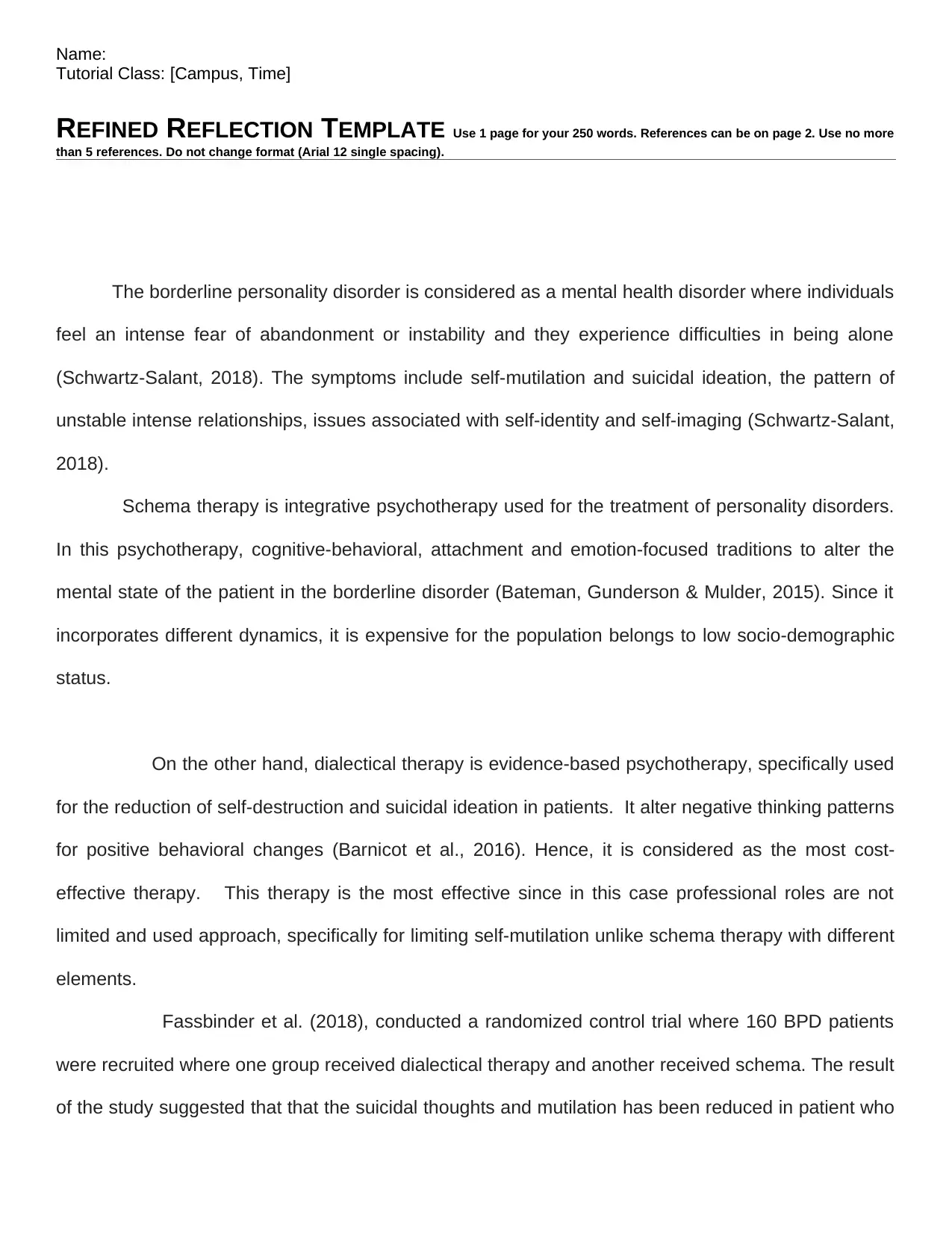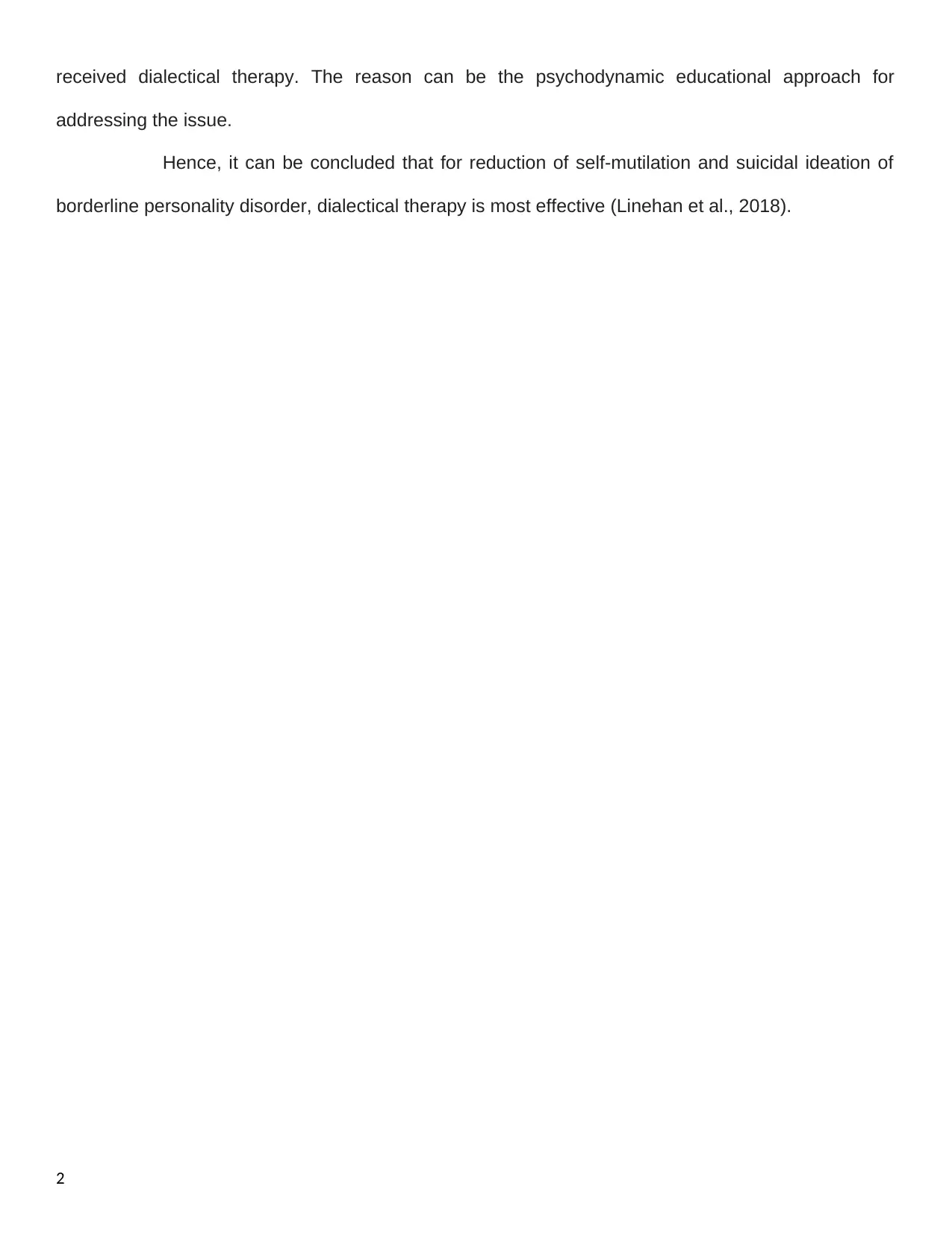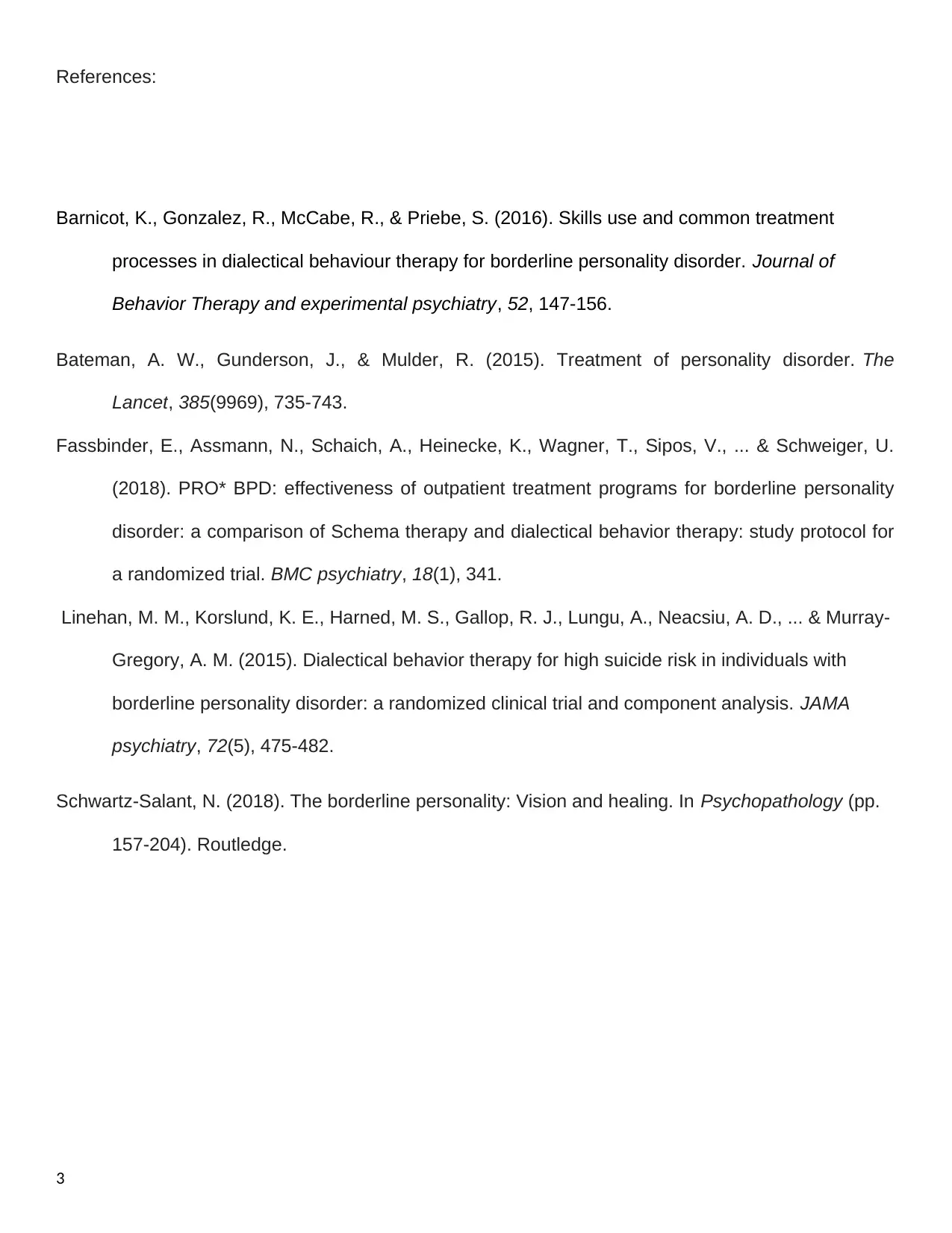Comparing Schema and Dialectical Therapy for BPD: Reflection
VerifiedAdded on 2022/10/11
|3
|603
|20
Homework Assignment
AI Summary
This assignment is a refined reflection comparing Schema Therapy and Dialectical Behavior Therapy (DBT) for the treatment of Borderline Personality Disorder (BPD). The reflection begins by defining BPD and its symptoms, including fear of abandonment, unstable relationships, self-mutilation, and suicidal ideation. It then describes Schema Therapy as an integrative approach incorporating cognitive-behavioral, attachment, and emotion-focused techniques, but notes its higher cost. Conversely, the assignment highlights DBT as an evidence-based and cost-effective psychotherapy, particularly effective in reducing self-destructive behaviors and suicidal ideation by altering negative thought patterns. The assignment references a study by Fassbinder et al. (2018) that supports the effectiveness of DBT in reducing suicidal thoughts and self-mutilation, concluding that DBT is the more effective treatment for BPD.
1 out of 3








![[object Object]](/_next/static/media/star-bottom.7253800d.svg)